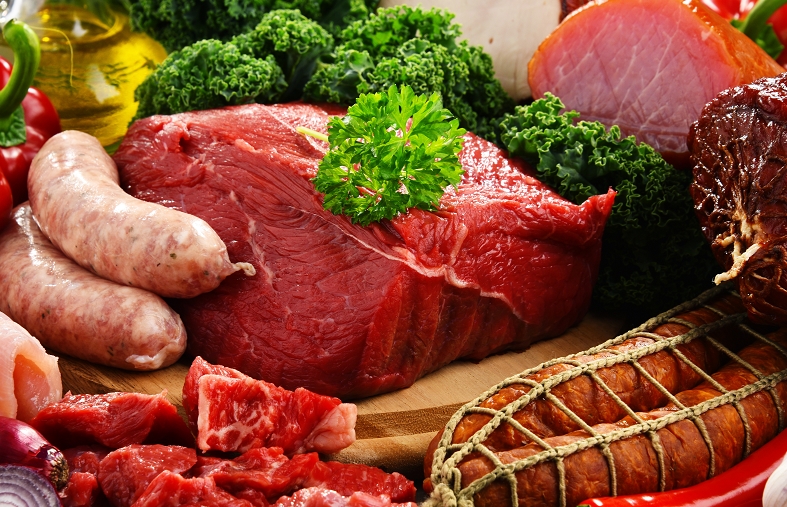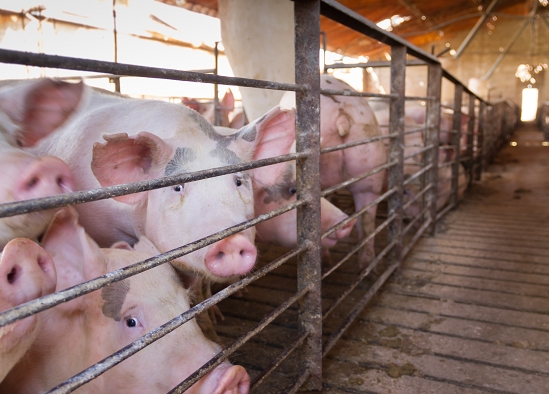
Meat overconsumption has been a major public health and environmental issue of concern in recent years. The general popularity at the box office will become popular as a result of increased diseases being sold at meat-eating high-calorie boxes, larger greenhouse gas emissions levels, and increasing health problems with heart disease & obesity.

According to the United Nations Food and Agriculture Organization, “livestock farming contributes 14.5 percent of all human-induced greenhouse gas emissions,” making the environmental impact of meat consumption a critical issue (Livestock and Climate Change). However, this heavy demand for meat—beef in particular—puts a serious strain on our agriculture sector. They use lots of land, water, and feed resources, which risks adopting environmentally careless farming practices. Given the sheer volume of meat we are eating, it is important to understand that this behavior affects more than how full our stomachs are.
There are a number of barriers related to the way that our food system is structured which hinder small farmers from being able to compete and succeed in this giant ocean filled with sharks, otherwise known as US agriculture.
These challenges include access to resources like capital, technology, or market size. “Smaller dairy farmers struggle with falling sales prices for their products, which are driven down by competition from larger farms that can produce milk more cheaply,” according to a report by the National Sustainable Agriculture Coalition (NSAC) (Small Farms and Federal Policy). Sometimes these larger entities benefit from legislation enacted to support agriculture, which might not be in the best interests of small farmers seeking access. Small farms, most often operating a farming-based business as well, which were heavily hit by the COVID-19 pandemic leading to economic uncertainty with no financial support & fair regulations, may soon find farming to be an uphill task.

Public health laws in India facilitate the protection of food safety throughout its length. These are laws which serve to safeguard consumers from foodborne illnesses as well as ensure that there has been adherence to safety standards in the processing of a specific type or method. Still, enforcing these regulations is complicated—especially for smaller farms that cannot afford the resources to be fully in compliance with all requirements.
According to the World Health Organization, “the safety of food should come first as, in the absence of stringent and effective monitoring to enforce guidelines for protection from contamination, legality is prone to major violations” (Food Safety in India). This illustrates the greater need for better food safety developed in light of the difficulties small farmers experience that ultimately allow their business to continue while protecting public health.
This may be overseen by solutions towards this; however, it is important to consider food safety and supporting small farmers. For example, programs could be developed that offer education and resources custom-suited for smaller ag operations. We can provide them with training in proper food safety and some sustainable farming techniques so they are able to produce these safe foods without losing all of their business. Moreover, by revising agricultural laws to establish a higher plateau for all such farms and thus at least some basic regulatory protections against fraud and food-borne illness.
In conclusion, the meat-eating epidemic is an issue of public concern that demands more than just stricter portion control according to epidemiological data on cancer or nutritionally dubious advice about fat and protein intakes. One of the most important things we can do in reversing this trend is acknowledging that sustainable practices within agriculture are needed and advocating for policies that maintain smaller operations as either farmers or consumers. Consumers should know exactly where their food comes from and how it got to them so they can make intelligent decisions that should benefit all stakeholders in the food system.
![]()
<Student Reporter Chloe Moon> chloemoon45@gmail.com
She is an 10th grade student at South Pasadena High School
====
Reference:“Food Safety in India.” World Health Organization, www.who.int/india/health-topics/food-safety.
Food and Agriculture Organization of the United Nations,https://www.fao.org/home/en/
National Sustainable Agriculture Coalition, https://sustainableagriculture.net/







